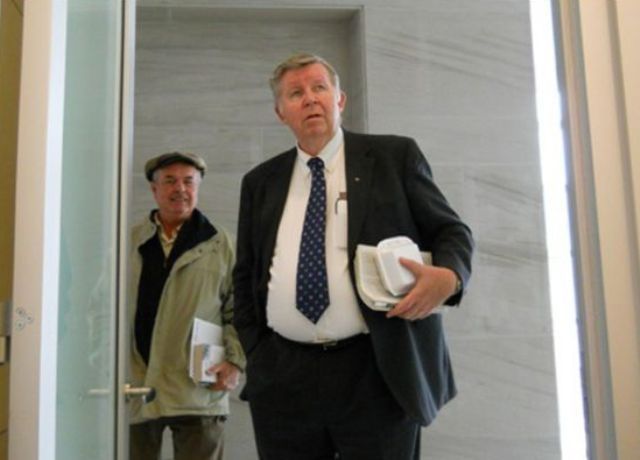Colorado Supreme Court takes no issue with 3-day delay in obtaining vehicle search warrant
The Colorado Supreme Court on Monday found no constitutional problem with a Denver detective waiting three days to obtain a search warrant for a vehicle seized by law enforcement, and it created a new test for determining when such delays become unreasonable.
The prosecution and the defense acknowledged to the state’s justices that the U.S. Supreme Court spoke about such delays in a 1970 opinion, indicating that unless police conduct a warrantless search, a vehicle “must be seized and held without a warrant for whatever period is necessary to obtain a warrant.”
But Chief Justice Monica M. Márquez, in the state Supreme Court’s June 30 opinion, did not believe the U.S. Supreme Court established a literal rule requiring vehicle searches to be conducted within whatever window is “necessary” to secure a warrant. Instead, she wrote that judges should look at multiple factors when considering if police unreasonably delayed getting a search warrant, including law enforcement’s reason for the delay and whether the defendant was being unfairly deprived of his property.
“Consideration of the government’s diligence safeguards against unreasonably long seizures by imposing a ‘time-sensitive duty’ to apply for a search warrant,” Márquez explained. “We emphasize that this balancing test is fact-intensive, context-specific, and dependent on the totality of the circumstances.”
Applying its newly created test, the Supreme Court concluded a Denver detective did not violate the rights of defendant Arthur Mills by obtaining a search warrant three days after police seized Mills’ car.
Police officers pulled over Mills for a traffic infraction, having allegedly observed him engage in signs of drug dealing. Mills did not have a license or proof of insurance and officers allegedly saw further indicators of drug activity during the stop.
Because Mills refused to get out of his car and officers were concerned about extracting him safely, they called Detective Kevin Burke. Although it was a Saturday afternoon and Burke was not working, he believed there was probable cause to impound the car and suggested the officers issue a citation and tell Mills he could not drive the vehicle under the circumstances.
On Monday, Burke returned to work. He requested that a drug detection dog sniff the impounded vehicle, but the dog handler asked if the sniff could happen on Tuesday. Burke said that was fine, believing they had “seven days to execute search warrants.”
The dog arrived on Tuesday morning and alerted to the presence of drugs. Burke applied for a warrant that afternoon and a judge signed it. Police found illegal drugs inside the vehicle.
The defense sought to exclude the evidence from trial, arguing police waited longer than necessary to obtain the warrant. At a hearing, District Court Judge Adam J. Espinosa agreed the delay from Saturday to Tuesday violated Mills’ Fourth Amendment right against unreasonable searches and seizures.
The prosecution appealed to the state Supreme Court, arguing Burke’s decision to wait for a dog sniff before obtaining a search warrant was reasonable.
“We do want police to be careful. We don’t want to penalize them for doing further investigation,” said Deputy District Attorney Ellen Michaels during oral arguments. “He certainly could have done this faster. He could have been sloppier about it. We don’t want that.”
Justice Richard L. Gabriel acknowledged the cautious approach seemed reasonable, but so did the defense’s argument that police appeared to be in no hurry following Mills’ arrest. Plus, Burke believed a seven-day period applied to search the car, which Michaels admitted was not the law.
“This was not a model of police conduct here,” Gabriel said.
Márquez, in applying the Supreme Court’s new test, deemed the three-day delay “relatively brief.” Mills could not use the car anyway, she added, as he had neither a driver license nor insurance. Although Burke did not necessarily have to wait for the dog sniff before applying for a warrant, the court did “not fault Denver Police for their thoroughness.”
“That Detective Burke could have submitted an application for a search warrant on Saturday, Sunday, or Monday does not make his efforts any less diligent,” Márquez wrote. “Although Tuesday was not the earliest possible time the warrant application could have submitted, it was still submitted within a reasonable time.”
The court reversed Espinosa’s order and permitted the drug evidence to be used against Mills.
The case is People v. Mills.
Colorado Politics Must-Reads:













